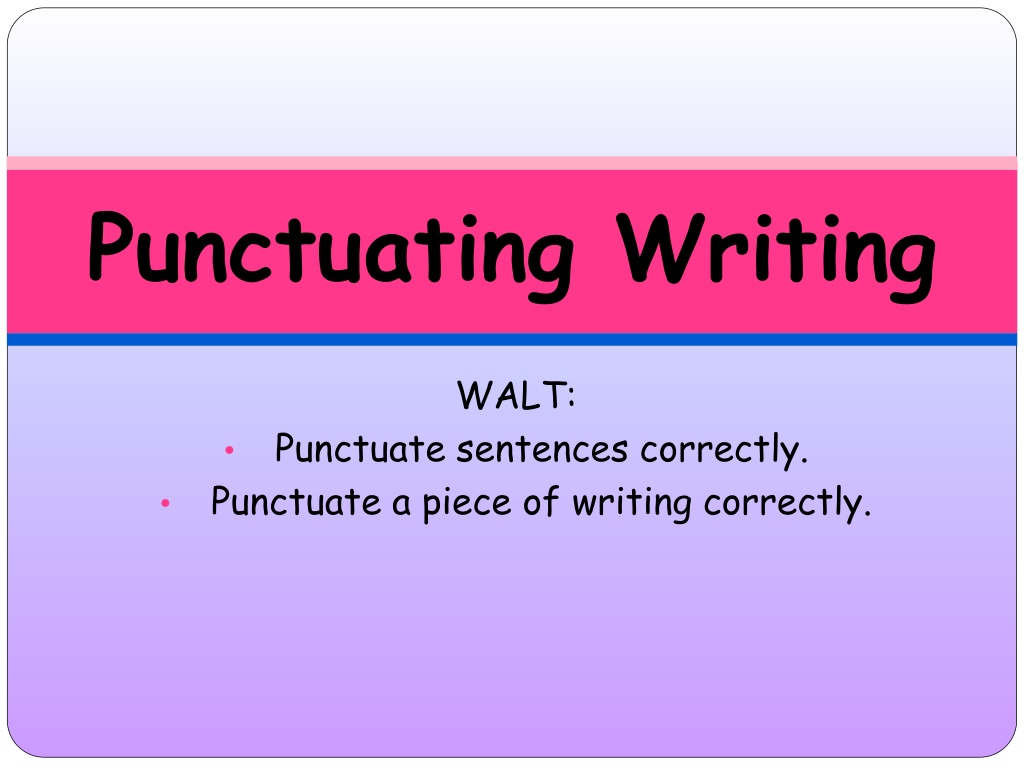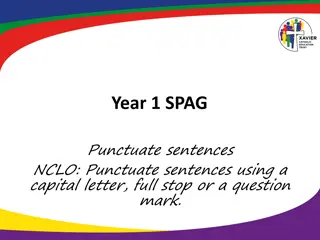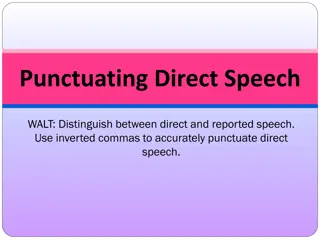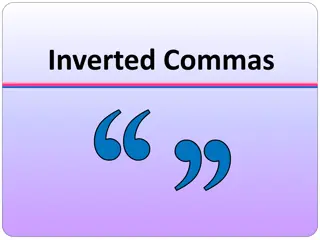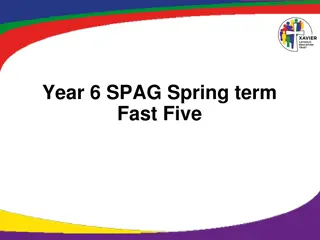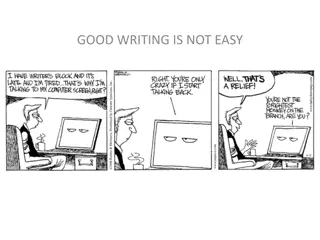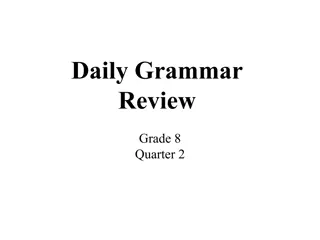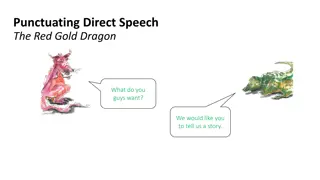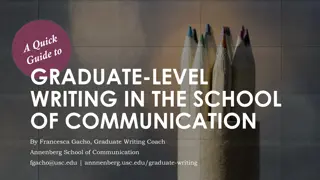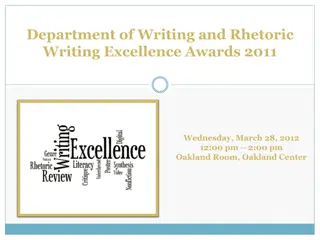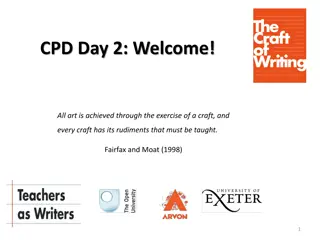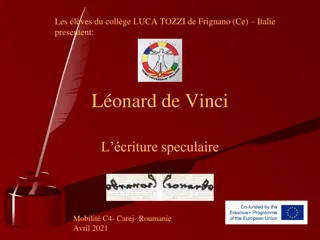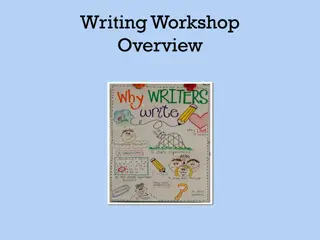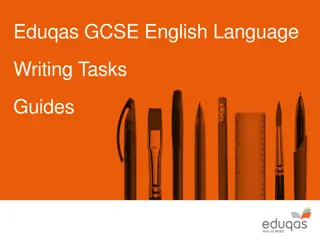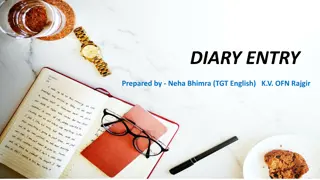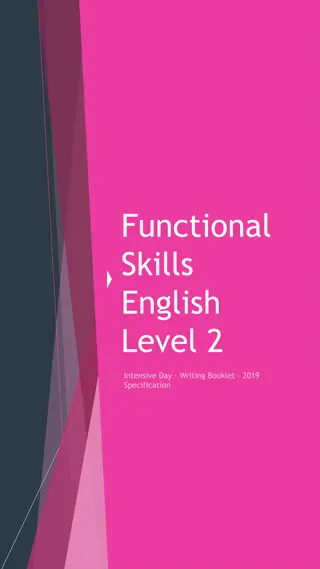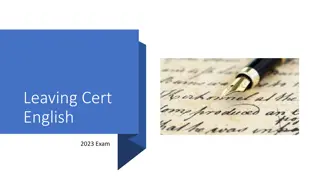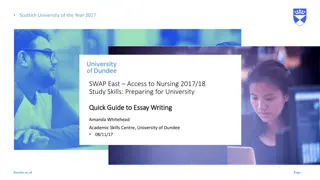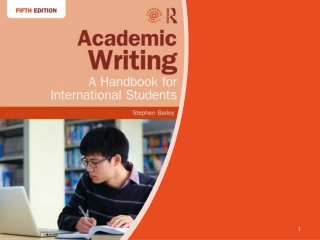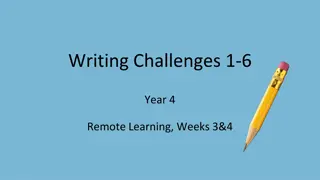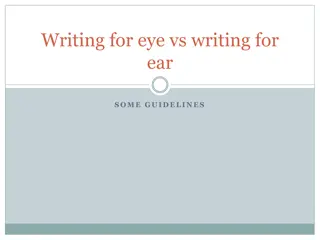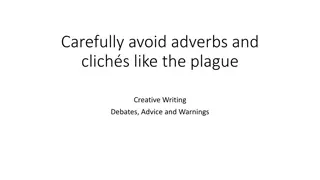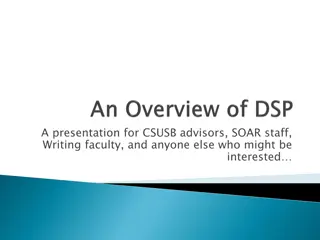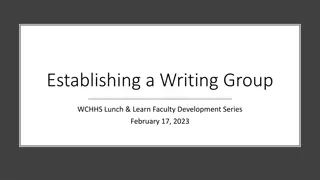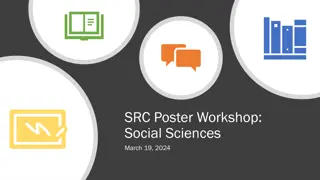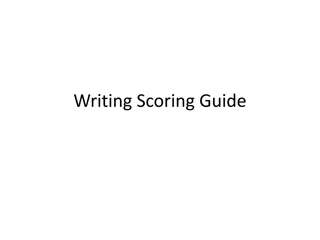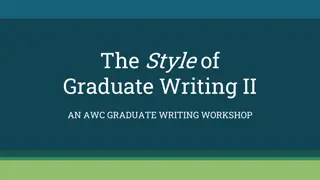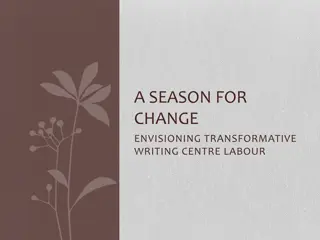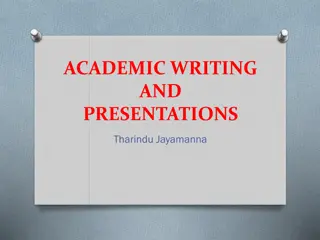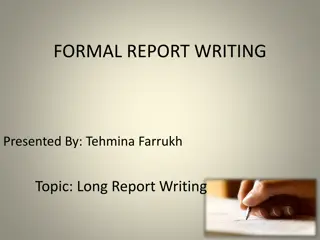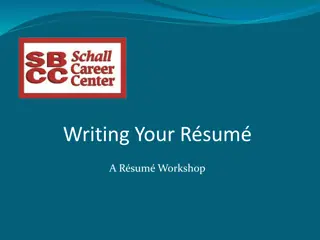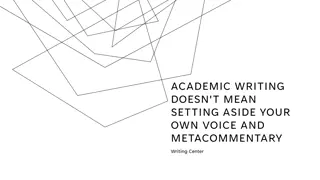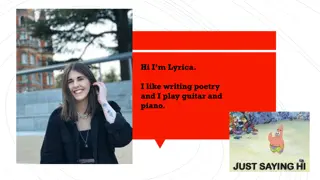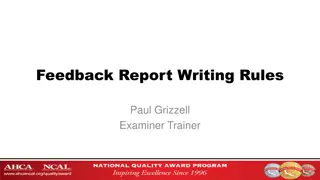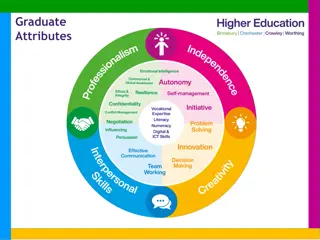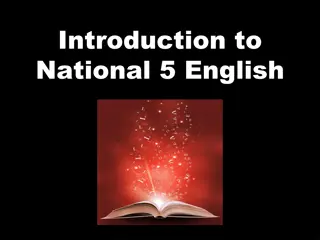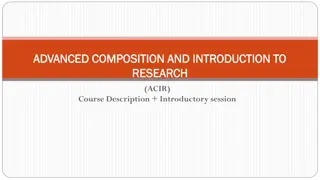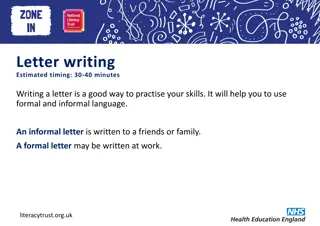Essential Guide to Punctuating Writing
Learn the importance of using capital letters, full stops, and question marks correctly in your writing. Understand when to capitalize for proper nouns and how to use punctuation marks to end sentences effectively. Enhance your writing skills by mastering punctuation rules.
Download Presentation

Please find below an Image/Link to download the presentation.
The content on the website is provided AS IS for your information and personal use only. It may not be sold, licensed, or shared on other websites without obtaining consent from the author. Download presentation by click this link. If you encounter any issues during the download, it is possible that the publisher has removed the file from their server.
E N D
Presentation Transcript
Punctuating Writing WALT: Punctuate sentences correctly. Punctuate a piece of writing correctly.
Capital Letters You should always use a capital letter: At the beginning of a sentence Every morning I go to the shop to buy chocolate milk. For the pronoun I Sometimes I buy strawberry milk for a change.
Capital Letters continued For proper nouns names of actual or specific people, places, objects, films or book titles. Examples of proper nouns: Theo, Miss Fenton, April, Monday, Italy, Declaration of Independence, Frozen . Mr Horan went to Edinburgh Zoo on the 25th February. Mr Horan went to the zoo on the 25th February.
Full Stop Small but mighty
Full Stop Full stops are needed to split up sentences so that we know where to pause. Sally had found the old mirror in the attic. She had never seen anything like it before. They are used when we have finished saying one thing and want to say something else. My favourite type of cake is chocolate cake. Sometimes I have it with tea after my dinner.
Full Stop We place full stops at the end of statements i.e. a sentence which tells you something. For example: Lara visited the zoo on Saturday. Nothing is being asked and there is no strong emotion so we use a full stop to show that the sentence is complete. Can you think of a sentence which would end with a full stop?
Question Mark Question marks are used to show that a question has been asked. You will often find yourself using them when writing dialogue (e.g. a character may ask something) or rhetorical questions. For example: Would you like a cup of tea? Can you think of a sentence ending with a question mark?
Who? ? Who Question Mark Why Why? ? If a sentence starts with a question word it will need a question mark at the end. Where Where? ? Does Does? ? Can? Can? What What? ? Should Should? ? When? ? When Could? Do? ? Could? How How? ? Which Which? ? Do May May? ? Whose Whose? ?
Exclamation Mark Exclamation marks are used if the sentence: Is a command or order Look out! Expresses strong emotion e.g. surprise, very angry/happy/excited etc This is the best day ever! Loudly spoken Get down from there! she yelled. Can you think of a sentence which would end with an exclamation mark?
Commas Where do we use them? Commas separate items in a list. These items are sometimes real things. For example: I need some pens, pencils, paper and a calculator before I start my class. I must buy some eggs, milk, sugar and tea. These items are sometimes things you do, or places you go. For example: Yesterday I went to work, played badminton, had snails for dinner and then went to bed.
Commas continued BEWARE!!!!!!! Always use and to separate the last two items on your list. Make sure you don t use a comma before the word or at the end of your list. Don t use commas where you should use a full stop. If the words could stand alone as a proper sentence, then you need to put a full stop or a joining word (and, but) and not a comma.
Commas continued Commas mark out the less important part of a sentence. The car, which was parked by the light, had a dog in the back seat. This sentence is about the car and the dog, not where the car is parked. Tony, his parents favourite, was given chocolate cake for dinner. This sentence is about how Tony was given chocolate cake for dinner, not that he was his parents favourite child.
Paragraphs A paragraph is a group of sentences about one main idea. Why do we use paragraphs? They break up long chunks of writing, making it clearer and more interesting for the reader. They provide a clear structure and order to our writing.
Paragraph example: Kim s favourite thing was to spend time with her dog, Lucy. Lucy was a black and white collie dog. She played with her every day after school. She fed her dog two times a day. In the afternoons, they would go for a walk together. Kim loved her dog a lot! What is this short paragraph about? Who is it about? Is it very obvious to the reader?
Quiz & task time Complete the quiz that follows. When you have finished that select one of the tasks and complete it on your laptop/ipad or into your jotter. There will be more tasks for you to practice tomorrow and each group will have a different focus.
Which is correct? What time are we going out! What time are we going out! What time are we going out? What time are we going out? What time are we going out. What time are we going out.
Which is correct? What time are we going out! What time are we going out! What time are we going out? What time are we going out? What time are we going out. What time are we going out.
Which is correct? Henry and I liked watching big hero 6 . Henry and I liked watching big hero 6 . Henry and Henry and i i liked watching Big Hero 6 . liked watching Big Hero 6 . Henry and I liked watching Big Hero 6 . Henry and I liked watching Big Hero 6 .
Which is correct? Henry and I liked watching big hero 6 . Henry and I liked watching big hero 6 . Henry and Henry and i i liked watching Big Hero 6 . liked watching Big Hero 6 . Henry and I liked watching Big Hero 6 . Henry and I liked watching Big Hero 6 .
Which is correct? Should you really be doing that Millie? Should you really be doing that Millie? Should you really be doing that Should you really be doing that millie millie? ? Should you really be doing that Millie. Should you really be doing that Millie.
Which is correct? Should you really be doing that Millie? Should you really be doing that Millie? Should you really be doing that Should you really be doing that millie millie? ? Should you really be doing that Millie. Should you really be doing that Millie.
Which is correct? How dare you be so impolite. How dare you be so impolite. How dare you be so impolite! How dare you be so impolite! how dare you be so impolite. how dare you be so impolite.
Which is correct? How dare you be so impolite. How dare you be so impolite. How dare you be so impolite! How dare you be so impolite! how dare you be so impolite. how dare you be so impolite.
Which is correct? Next Thursday, I am going bowling. Next Thursday, I am going bowling. Next Next thursday thursday, I am going bowling. , I am going bowling. Next Thursday, Next Thursday, i i am going bowling. am going bowling.
Which is correct? Next Thursday, I am going bowling. Next Thursday, I am going bowling. Next Next thursday thursday, I am going bowling. , I am going bowling. Next Thursday, Next Thursday, i i am going bowling. am going bowling.
Which is correct? My favourite book is Awful Aunty by David My favourite book is Awful Aunty by David Walliams Walliams. . My favourite book is awful aunty by David My favourite book is awful aunty by David Walliams Walliams. . My favourite book is Awful Aunty by My favourite book is Awful Aunty by david david walliams walliams. .
Which is correct? My favourite book is Awful Aunty by David My favourite book is Awful Aunty by David Walliams Walliams. . My favourite book is awful aunty by David My favourite book is awful aunty by David Walliams Walliams. . My favourite book is Awful Aunty by David My favourite book is Awful Aunty by David Walliams Walliams? ?
Which is correct? Get down quickly? shouted Captain Phillips. Get down quickly? shouted Captain Phillips. Get down quickly! shouted Captain Phillips. Get down quickly! shouted Captain Phillips. Get down quickly. shouted Captain Phillips. Get down quickly. shouted Captain Phillips.
Which is correct? Get down quickly? shouted Captain Phillips. Get down quickly? shouted Captain Phillips. Get down quickly! shouted Captain Phillips. Get down quickly! shouted Captain Phillips. Get down quickly. shouted Captain Phillips. Get down quickly. shouted Captain Phillips.
